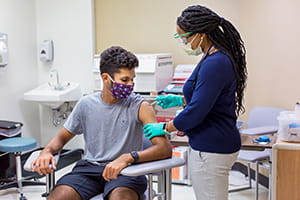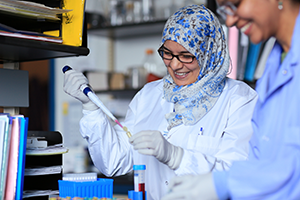A Leader in Research and Discovery
In 1927, visionary industrialist, businessman and philanthropist James N. Gamble, of Procter & Gamble, made a transformational gift to launch what we know today as The Gamble Vaccine Research Center, the world-renowned research program at Cincinnati Children’s.
Along the way, other generous supporters such as Judge Alfred K. Nippert made remarkable investments to grow and solidify the program as a prestigious leader of research and discovery. Because of Gamble’s vision, and ongoing support from donors and friends of Cincinnati Children’s, The Gamble Vaccine Research Center is making a difference in the lives of kids from around the world.







